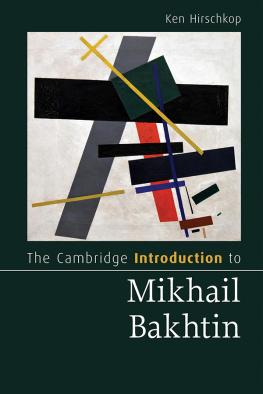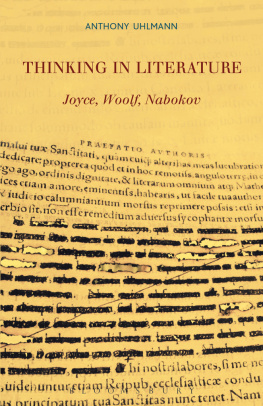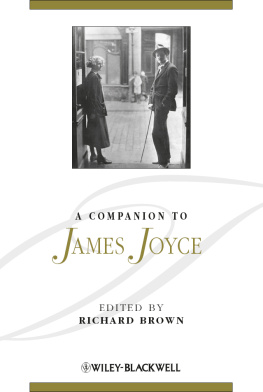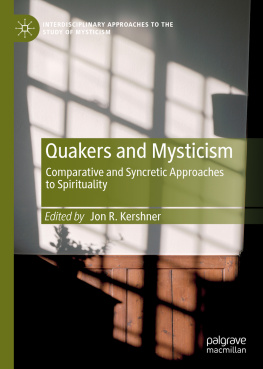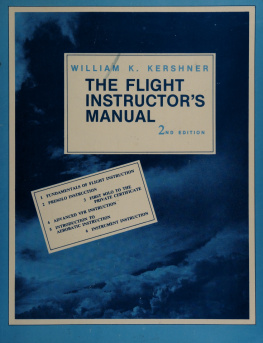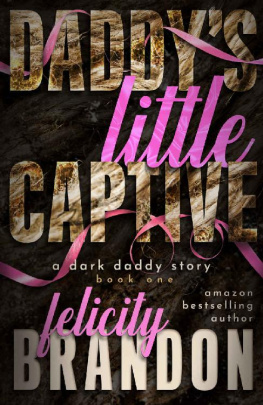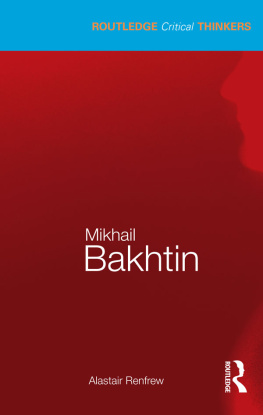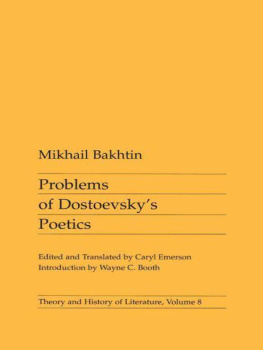Joyce, Bakhtin, and popular literature: chronicles of disorder / by R. B. Kershner, Jr.
p. cm.
Bibliography: p.
Includes index.
ISBN 0-8078-1833-X (alk. paper)
ISBN 0-8078-4387-3 (pbk.: alk. paper)
1. Joyce, James, 18821941KnowledgeLiterature. 2. Bakhtin, M. M. (Mikhail Mikhalovich), 18951975. 3. Popular literatureHistory and criticismTheory, etc. 4. Books and reading in literature. 5. Popular culture in literature. 6. Dialectic. I. Title.
PR6019.09Z674 1989 88-22711
823.912dc19 CIP
The paper in this book meets the guidelines for permanence and durability of the Committee on Production Guidelines for Book Longevity of the Council on Library Resources.
THIS BOOK WAS DIGITALLY MANUFACTURED.
ACKNOWLEDGMENTS
During the past fifteen years the subject of Joyces use of popular literature has intrigued me. The path toward this book has been anything but straightforward, marked by wide detours and extravagances, blind alleys and dead ends, but along the way I have been given generous assistance by more sources than I can name. The Graduate School of the University of Florida twice supported me with summer research grants, and the National Endowment for the Humanities did so once. I was especially fortunate to be given the opportunity of teaching at University College Dublin during a semester in 1984, and I want to express my gratitude to the faculty in the department of English and Anglo-Irish literature there for the warm welcome I received. In particular I want to thank J. C. C. Mays, Declan Kiberd, Seamus Deane, and Augustine Martin for their substantial help in my research and for their unstinting encouragement and personal kindness. An early version of my discusion of The Sisters was delivered under the auspices of the departments Staff Seminars. The staff of the National Library was helpful and efficient, and several of Dublins nonacademic Joyceans gave me more of their time and attention than I had any right to expect. I especially want to thank Gerry OFlaherty and Hugh Oramwho shared with me his vast knowledge of Irish newspapersand to express my gratitude to the late John Garvin.
I have been unusually fortunate in my colleagues at Florida, many of whom have helped clarify my thinking, suggested useful references, or simply lent informed moral support during this project. Academic work often hinges on happy accidents; it was a graduate student, Carlos Valdes, who suggested at the right time that Bakhtins writings might be useful to me. Among my colleagues, I would like to express my gratitude to Jim Twitchell, Robert Ray, Alistair Duckworth, Jack Perlette, Anne G. Jones, Ronald Carpenter, Al and Judy Shoaf, Robert Thomson, Ellie Ragland-Sullivan, and Greg Ulmer. Ruth Baldwin of the Baldwin Library was helpful in providing rare copies of nineteenth-century childrens literature. As always, my students have been a source of inspiration; in particular I would like to thank my senior English Honors seminar in Joyce and Bakhtin for providing the most exciting class of my teaching experience and for suggesting many readings and ideas that have undoubtedly made their way into this book, but that I can no longer distinguish from my own thoughts.
Among my colleagues elsewhere, Weldon Thornton, to whom all contemporary Joyceans are greatly indebted, encouraged me in the early stages of my research, as did Leslie Fiedler. Zack Bowen kindly sent me opera libretti. Suzette Henke has made valuable suggestions in the course of the books writing, and Cheryl Herr, whose work in some ways has paralleled mine, has been a helpful and insightful critic. Her ground-breaking work in the study of Irish popular culture has been a stimulus and an example. During the writing of this book, Bob Fuhrel loaned me his Joyce library. I am grateful for this, and for his friendship. I would also like to acknowledge two of my teachers, Ian Watt and J. Hillis Miller. Although neither may recognize his trace in any part of this book, both are powerful voices in it, in however distorted or inadequate a form.
I am indebted to the editors of ELH, where a portion of chapter 4 appeared in different form, for permission to reprint parts of my essay. I am also indebted to the editors of the James Joyce Quarterly for permission to reprint a portion of chapter 5.
Finally, I would like to express my gratitude to Rhonda Riley. If, as Bakhtin says, the self is the gift of the other, mine is most nearly hers.
ABBREVIATIONS IN THE TEXT
References to Joyces and to Bakhtins works are cited parenthetically in the text and are to the following editions:
James Joyce:
CWThe Critical Writings of James Joyce. Ed. Ellsworth Mason and Richard Ellmann. New York: Viking Press, 1959.
DDubliners: Text, Criticism, and Notes. Ed. Robert Scholes and A. Walton Litz. New York: Viking Press, 1968.
EExiles: A Play in Three Acts, Including Hitherto Unpublished Notes by the Author, Discovered after his Death, and an Introduction by Padraic Colum. New York: Viking Press, 1951.
PA Portrait of the Artist as a Young Man: Text, Criticism, and Notes. Ed. Chester G. Anderson. New York: Viking Press, 1968.
SHStephen Hero. Ed. John J. Slocum and Herbert Cahoon. New York: New Directions, 1963.
UUlysses: The Corrected Text. Ed. Hans Walter Gabler, with Wolfhard Steppe and Claus Melchior. New York: Random House, 1986. Parenthetical references following the slash are to
Ulysses (New York: Random House, 1961). Quotations follow Gablers text.
Mikhail Bakhtin:
DIThe Dialogic Imagination: Four Essays. Ed. Michael Holquist; trans. Caryl Emerson and Michael Holquist. Austin: University of Texas Press, 1981.
FMLSThe Formal Method in Literary Scholarship. As by Bakhtin/P. N. Medvedev. Trans. Albert J. Werle. 1978. Reprint. Cambridge: Harvard University Press, 1985.
MPLMarxism and the Philosophy of Language. As by V. N. Volosinov. Trans. Ladislav Matejka and I. R. Titunik. 1973. Reprint. Cambridge: Harvard University Press, 1986.
PDPProblems of Dostoevskys Poetics. Trans. Caryl Emerson. Minneapolis: University of Minnesota Press, 1984.
RWRabelais and His World. Trans. Helene Iswolsky. Bloomington: Indiana University Press, 1984.
SGSpeech Genres and Other Late Essays. Ed. Michael Holquist; trans. Vern McGee. Austin: University of Texas Press, 1986.
JOYCE, BAKHTIN, AND POPULAR LITERATURE
CHAPTER 1
JOYCE, BAKHTIN, AND THE CANON
Joyce and Popular Literature
Toward the middle of the Nighttown episode of Ulysses, Leopold Bloom has become both Messiah and Ruler, but his hegemony is threatened by jeers from the Man in the Macintosh. Fearing that the populace will be alienated, Bloom and his bodyguard take immediate counter-measures: they distribute to the crowd Maundy money, commemoration medals, loaves and fishes, temperance badges..., 40 days indulgences, spurious coins, and a host of similar items, all either cheap, useless, or counterfeit. But the climactic gift is a set of cheap reprints of the Worlds Twelve Worst Books: Froggy and Fritz (politic), Care of the Baby (infantilic), 50 Meals for 7/6 (culinic), Was Jesus a Sun Myth? (historic), Expel That Pain (medic), Infants Compendium of the Universe (cosmic), Lets All Chortle (hilaric), Canvassers Vade Mecum (journalic), Loveletters of Mother Assistant (erotic), Whos Who in Space (astric), Songs that Reached Our Heart (melodic), Pennywises Way to Wealth (parsimonic) (


